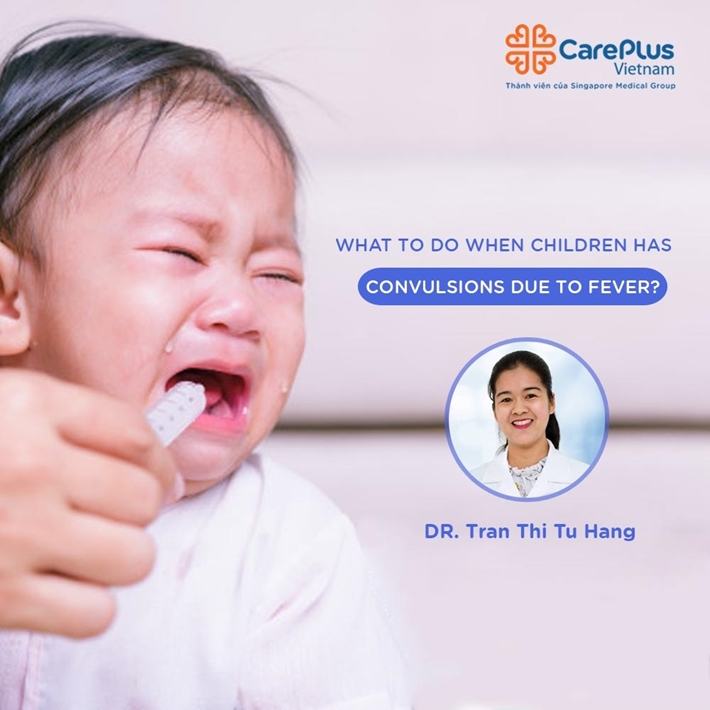What to do when children have convulsions due to fever?

10/30/2020 9:35:39 AM
The seasonal weather makes children, especially under 5 years old, have flu. Cold and flu symptoms like cough, runny nose, sore throat especially fever become familiar. Convulsions when fever is the obsession of many parents. On average, for every 100 children from 6 to 5 months old, there will be 2-4 children with febrile convulsions, especially from 12-18 months.
Many parents, when seeing their children with seizures, will frantically apply water, wipe cool, rub lemon, squeeze lemongrass into their mouth without knowing that these treatments are dangerous.
What should parents do when a child has convulsions?
Convulsion due to fever is usually benign, does not cause brain damage, and does not increase the risk of seizures as well as usually happens in less than 5 minutes. Furthermore, the seizure won't stop no matter what, so you need to be calm and take the following steps:
- Place the child on his or her side on a safe surface such as a bed, crib.
- Observe your child's seizures to describe it to the doctor
- Pay attention to how long the child has seizures
- Do not try to restrain the child's limbs to prevent seizures
- Do not put anything in the child's mouth such as lemongrass, hands or even fever-reducing medicine as it can increase the risk of inhalation.
- Do not try to put your hand or spoon on the child's mouth because it can damage the child's teeth, gums, tongue. Parents rest assured because children will not bite their own tongue
- Do not put your child in the tub with water to reduce the temperature.
- Parents need to take the child to another doctor to visit later or call an ambulance as soon as the seizure sign lasts more than 5 minutes.
Have your children a healthy immune system through seasonal weather, they should be provided a full complement of nutrients including vitamins & minerals which is not only vitamin C but also vitamins A, D, E, iron, zinc, selenium, and antioxidants like flavonoid. Drink enough fluids, get enough sleep, exercise regularly, clean personal hygiene, and full vaccinations.
Dr. First Specialist Tran Thi Tu Hang
Pediatric Specialist, CarePlus International Clinic